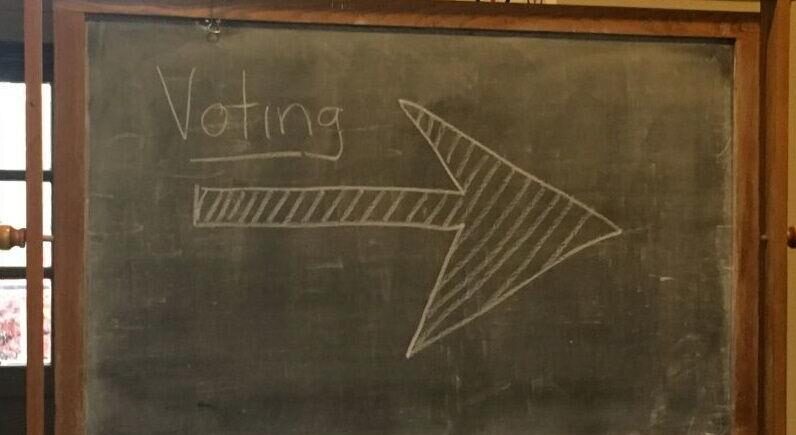
U.S. Rep. Elise Stefanik, R-Schuylerville, wants to expand public/private partnerships in workforce training.
Only 125,000 unemployed adults and laid-off workers a year are now completing federal job training programs, and only a third of them are employed in a related field six months after completion, Stefanik said in a news release on two bills he recently introduced.
“Accessible workforce development can equip more workers for in-demand jobs and provide job creators with the skilled labor they need,” Stefanik said.
The first of the bills, introduced June 14, would allow employees to develop workforce training programs tailored to employer needs and pay for training through “employer-directed skills accounts,” which the federal government and the employer would contribute.
Training can be provided by the employer or an external educational contractor.
People also read…
The second bill would allow employers who use pre-employment testing to submit their methodology to the federal Equal Employment Opportunity Board to determine whether it complies with federal law.
Those who comply would be certified as “job ready.”
The EEOC could not use the information submitted to initiate an investigation of the employer.
Neither bill had co-sponsors as of July 1.
In other political news from the region:
LGBTQI protections
U.S. Rep. Paul Tonko, D-Amsterdam, recently sponsored several bills to address discrimination based on gender identity and sexual orientation.
Tonko was an original co-sponsor of legislation that Rep. Bradley Scott Schneider, D-Ill., introduced Friday to expand protections under the Fair Housing Act to include people who experience discrimination based on sex or sexual orientation.
The legislation, HR 4439, had 14 original co-sponsors, 13 Democrats and one Republican, from 11 states.
Tonko was an original co-sponsor of legislation that U.S. Rep. Sara Jacobs, D-Calif., introduced Friday to impose sanctions on foreign individuals responsible for violations of international human rights protections for lesbian, gay, bisexual, transgender, queer and intersex.
Details of the proposed penalties were not yet available as of Sunday.
The legislation, HR 4422, had 51 original co-sponsors: 50 Democrats and one Republican.
On Friday, Tonko co-sponsored legislation that Rep. Bonnie Watson Coleman, DN.J., reintroduced on June 27 to prohibit discrimination in businesses such as stores, hotels and restaurants based on sex, gender identity and sexual orientation.
The proposed legislation would also add sex, gender identity and sexual orientation to the prohibitions of the Civil Rights Act of 1964.
The legislation — HR 4393 — had 21 co-sponsors, as of Sunday, all Democrats.
Watson Coleman first introduced the legislation in 2015, according to a news release.
Tax on educational endowments
U.S. Rep. Elise Stefanik, R-Schuylerville, has taken exception to her usual opposition to new taxes, aiming to protect national security rather than raise revenue.
Stefanik is an original co-sponsor of legislation that Rep. Gregory Murphy, R-North Carolina, introduced to establish a special tax on contributions from Chinese donors to large collegiate endowment funds.
The tax, applicable to private college and university endowments of $1 billion or more, would be 50 percent of the initial contribution and 100 percent of future earnings from the contribution.
“The move is intended to pressure large university endowments to purge their investment portfolios of Chinese entities deemed a threat to U.S. national security,” Murphy said in a news release.
The legislation — HR 4380 — had seven co-sponsors, all Republicans, as of July 2.
Suicide prevention
State Rep. Carrie Woerner, D-Round Lake, announced she held a two-hour “listening session” on June 22 to discuss ways to prevent suicide.
Representatives from health agencies, education, non-profit organizations, veterans groups and government officials participated in the forum.
“In order to better understand any situation, I think it’s best to listen to different perspectives. Suicide prevention is very complicated and multifaceted. One big takeaway from this meeting: We must meet again,” Woerner said in a press release. “This time we’ve hit the crest of the waves. At our next meeting, we will take the conversation to the next level.”
economic development
U.S. Rep. Elise Stefanik, R-Schuylerville, on June 15 introduced bipartisan legislation to continue the Northern Border Commission for another 10 years and to modify its guidelines to be more flexible in support health care and housing projects.
The commission is a federal/state partnership that assists with economic and community development in regions along the US-Canada border in New York, Vermont, New Hampshire and Maine.
The proposed legislation would authorize $40 million annually in funding to the commission for the first five years and $45 million annually for the remaining five years.
Maury Thompson covered local government and politics for The Post-Star for 21 years before retiring in 2017. He continues to follow regional politics as a freelance writer.
Get government and policy updates delivered to your inbox!
Stay up to date with the latest on local and national government and political issues with our newsletter.
[ad_2]
Source link





